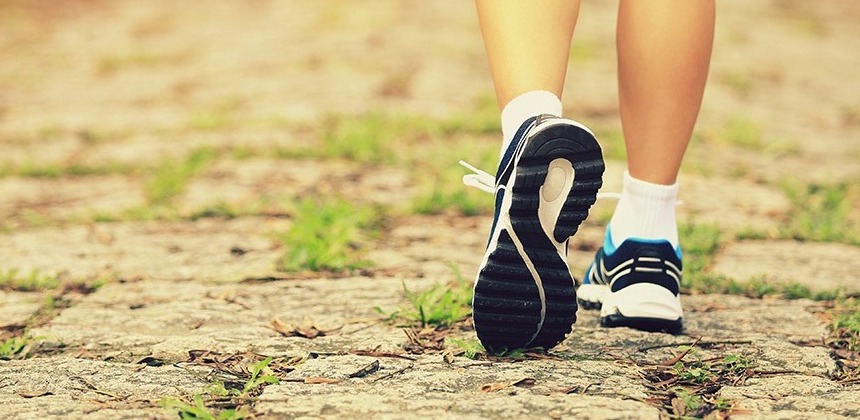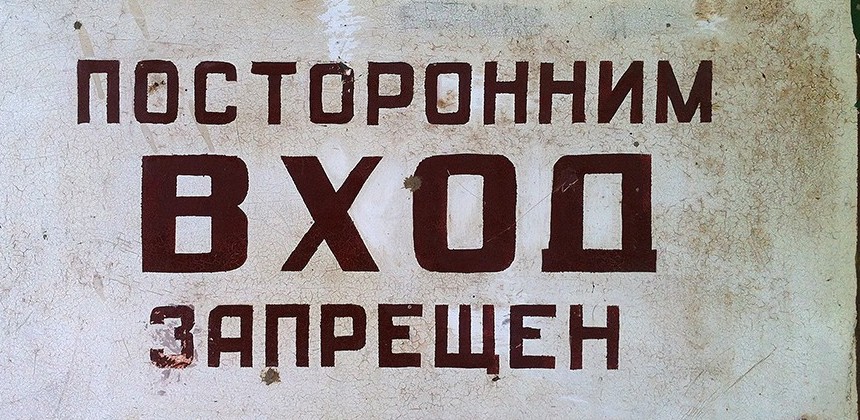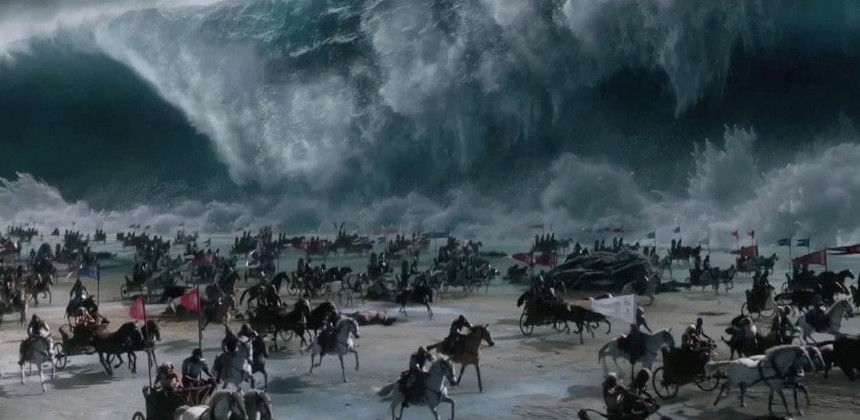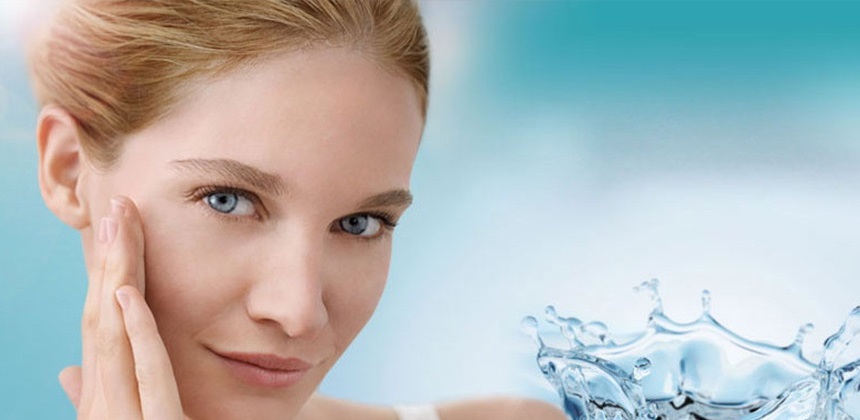'Hiking' or a 'Steamboat' - What do These Words Have in Common in Russian?
In Russian two different words can have more in common than one would imagine. Russian is one of the languages that easily allows you to grasp new words without looking them up in a dictionary.

In Russian two different words can have more in common than one would imagine.
Russian is one of the languages that easily allows you to grasp new words without looking them up in a dictionary. For example, if you know words such as сам (self) and звать (to call), you can get the meaning when two of those are combined forming a new word самозванец - an imposter, or as you probably guessed yourself, "someone who called himself as someone". In order to learn how to improve your Russian skills check another blog here.
In English you can sometimes guess the meanings as well, e.g. hall - hallway, with - herewith etc. However, English has many words that came from other languages such as Latin, French and German and it is a little bit hard to grasp if you are not familiar with the words of those languages. For instance, the word 'fake' means поддельный in Russian, which together with its prefix под– and verb делать (to make) literally could be translated as 'something that was made up'. In English it would be hard to know exactly what the word 'fake' means if you see it for the first time, but in Russian the word is almost self-explanatory. Sometimes it is the other way around though, when word formation in English makes much more sense.
It can be really hard to learn new complicated and long words written in Cyrillic, especially for the ones who didn't get used to the language logic yet. But there is a little tip, that can help to boost your vocabulary once you get familiar with the idea of how word formation system looks like not only in Russian, but mainly in all other Slavic languages as well.

1. Ходить - to walk
This is probably one of the most first words you will learn right at the beginning of your Russian course. It is one of the most frequent verbs that you will use with different conjugations and forms. But most importantly it is a stem word that will allow you to understand easily other words. Other verbs formed using ходить:
- cходить - to go and come back
- переходить - to cross the road
- входить - to enter
- выходить - to exit
- заходить - to come in
- уходить - to go away
- приходить - to come at
- отходить - to step aside
- походить - to look alike
- проходить - to walk though
And the list goes on.
- Ты ходишь в спортзал? - Do you go to gym?
- Уходи! - Go away!
- Заходи! - Come in!
- Осторожно переходите дорогу.- Cross the road carefully.
- Хватит ходить туда-сюда! - Stop running forth and back!

2. Ход - a step
Short noun form of the verb ходить is ход. Ход means a step or a move. Ход is used in many words, so you will see it very frequently.
- Делать ход. - To move a figure in a chess game. (Literally 'to make a move'.)
- Подземный ход для побега. - Underground passage for prison break.
- Как влиять на ход событий? - How to influence the course of events?
- Это был отличный дипломатический ход. - This was a great diplomatic move.

3. Ходьба - walking
From ход we've got its extended version - ходьба, which means 'walking', and describes rather process than short movement or a step. The word is formed using suffix –б, which you can see in other words, such as борьба (a fight), стрельба (a shooting) etc.
- Я устала от ходьбы, может отдохнем? - I am tired of walking, may be we could rest a little bit?
- Утренняя ходьба никому ещё не мешала. - Walking in the morning never hurt nobody.
- Ходьба для похудения. - Walking to lose weight.
- Ненавижу ходьбу. - I hate walking.

4. Вход - an entrance; выход - an exit
'An entrance' and 'an exit' in Russian have one word root - ход, because someone walks through these things. That totally makes sense! Вход is formed with prefix в- which means 'step in' and выход is obtained by using prefix вы- which means 'step out'. Consequently, two other verbs are formed: входить and выходить - to come in and go out.
- Собакам вход запрещён! - Dogs are not allowed to enter!
- Выход там. - Exit is right there.
- Где вход? - Where is the entrance?
- Вход. - Login.

5. Восход - sunset; восхождение - ascent.
How sun moves can be described using ход as well. Prefix вос- adds the meaning of something that 'rises upwards'.
- Восход солнца - это всегда красиво. - Sunrise is always beautiful.
- Jupiter Ascending - Восхождение Юпитера. (A name of the movie)
- Восток - это где восходит солнце. - East is where sun rises.
- Сколько стоит восхождение на Эверест?- How much does it cost to climb the mountain Everest? (If you ever decide to do that, you know how to ask it in Russian!)

6. Поход - hiking
By adding prefix по- to our already very well known ход we've got the word, which would mean 'a trip' or 'hiking'. In Russian camping trips are mostly associated with spending time with nature or hiking. The prefix по- emphasizes that 'walking will be directed somewhere'.
- Мы всей семьей отправились в поход. - Our whole family went out for a camping trip.
- Люблю походы в горы! - I love camping trips in mountains!
- Туристические походы в Европу. - Touristic trips to Europe.
- Крестовые походы в Средневековой Европе. - Crusades in Medieval Europe.

7. Пароход - a steamboat
Who would have thought that hiking and a steamship would be formed from the same word stem in Russian! Nonetheless, that's how it is. Пар (steam) + ход (step) = steamboat! Or literally 'something that walks on steam'.
- Пароход затонул в море. - Steamboat sank into the sea.
- Пароходы, корабли и лайнеры - это морские судна. - Steamboats, ships and liners are all sea vessels.
- Мы добрались туда на пароходе. - We get there on a steamboat.
- Пароход вот-вот тронется! - The steamboat will depart in a minute!

8. Исход - Exodus
Yes, the second book of Torah - Exodus means Исход. Did you already guess why? It's pretty simple, ис- + ход = исход, literally meaning 'walking away from somewhere'. It makes sense, because the story of Book of Exodus depicts the departure of the Israelites from Egypt.
- Книга Исход, Глава Первая. - The Book of Exodus, Chapter One.
- Исход: Цари и боги. - Exodus: Gods and Kings. (A name of the movie)
- Исход еврейского народа из Египта. - Exodus of the Israelites from Egypt.
- Исход русских из Китая. - Exodus of Russians from China.

9. Прихожая - a hallway
In Russian you would call the space right after you enter your home as прихожая. Thus, the word literally means a 'pre-walking place' or a place where people 'walk before coming in'.
- Надо прибраться в прихожей. - We need to tidy up in the hallway.
- Дом с большой прихожей. - A house with a big hallway.
- Что стоишь в прихожей? Заходи! - Why are you standing in a hallway? Come in!
- У Вас прихожая такая чистая. - Your hallway is so clean.

10. Проход - a passage
Prefix про- gives the meaning of 'through' to the word. So проход would be 'walking through' or something that must be passed through to get to the destination.
- Узкий проход - A narrow passage.
- В городе много всяких уличных проходов. - There are many street passages in the town.
- Там есть проход?. - Can I pass through there?
- Проход через мост закрыт - A passage through the bridge is closed.

11. Уход - a care
Finally, if you leave your home, work or any other place you would use a proper word for it - уход. Prefix у- adds a meaning of 'something that is departing'. Уход is also homonym for the word 'care'. So be careful, уход из жизни and уход за кожей are two different things! First one means death, while the second phrase means taking care of your skin.
- Уход с работы только прибавило проблем. - Leaving my work only added more problems.
- Ежедневный уход за волосами. - Hair care routine.
- Главное - правильный уход. - Most important thing is a proper care.
- Причины ухода детей из дома. - Reasons why children escape from home.
